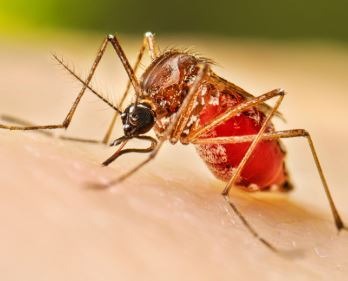Goat Milk and Dengue: Research Dismantles Myth, Finds No Evidence of Platelet Recovery Boost
For years, a popular belief has circulated across India that drinking goat milk helps increase platelet count in dengue patients. Families, worried for their loved ones, often rush to buy goat milk during dengue outbreaks, believing it to be a natural cure. However, new research has now debunked this widespread myth, showing there is no scientific evidence linking goat milk consumption to improved platelet recovery. Experts warn that relying on such unverified remedies can be risky and may delay proper medical care.


By: Bharat Daily Samachar Date: 23 Sep,2025
Introduction: Breaking the Myth Around Goat Milk in Dengue Care
For years, a popular belief has circulated across India that drinking goat milk helps increase platelet count in dengue patients. Families, worried for their loved ones, often rush to buy goat milk during dengue outbreaks, believing it to be a natural cure. However, new research has now debunked this widespread myth, showing there is no scientific evidence linking goat milk consumption to improved platelet recovery. Experts warn that relying on such unverified remedies can be risky and may delay proper medical care.
The Origins of the Goat Milk Myth
The idea that goat milk boosts platelets during dengue likely originated from cultural traditions and word-of-mouth remedies passed through generations. Some believed that since goat milk is lighter and easier to digest compared to cow’s milk, it had medicinal properties. Others assumed its rich nutrient content could aid faster recovery. With dengue spreading rapidly in many Indian states each year, the myth gained popularity—often amplified through social media and WhatsApp forwards.
But as the latest research reveals, belief does not equal science.
What the Research Found
Medical researchers conducted studies on dengue patients to check whether goat milk actually impacted platelet counts. The findings were clear:
No Significant Difference: Patients who consumed goat milk did not show faster platelet recovery compared to those who followed standard treatment.
No Active Compounds for Platelets: Goat milk lacks any medically proven compounds that directly influence platelet production.
Risk of Misleading Patients: Believing in this myth can prevent patients from seeking timely medical care.
Dr. Anjali Mehra, a virologist involved in the study, explained:
“While goat milk is nutritious and safe in moderation, there is absolutely no evidence that it can increase platelet count in dengue patients. Medical treatment and proper hydration remain the only effective approaches.”
Why Platelets Drop in Dengue
To understand why goat milk does not work, it’s important to know how dengue affects the body.
Dengue virus attacks bone marrow, where platelets are produced.
This leads to a sharp drop in platelet count, sometimes causing internal bleeding.
Recovery depends on how the body fights the virus and how supportive medical treatment is, not on consuming certain foods.
Doctors emphasize that platelet transfusion, hydration, and medical monitoring are the only proven methods to manage critical dengue cases.
The Real Dangers of Blindly Following the Myth
While goat milk itself is not harmful if consumed safely, the real danger lies in misplaced trust:
Delayed Treatment: Families may waste time searching for goat milk instead of rushing patients to hospitals.
Exploitation: During dengue outbreaks, goat milk prices often skyrocket, as desperate families buy it at inflated rates.
False Security: Believing in unscientific remedies gives patients a false sense of improvement while the disease worsens.
This highlights why public awareness is crucial to fight misinformation during health crises.
What Actually Helps in Dengue Recovery?
Doctors recommend a set of scientifically proven practices:
Hydration: Drinking plenty of fluids such as ORS, coconut water, and fruit juices helps maintain electrolyte balance.
Nutritious Diet: A diet rich in fresh fruits, vegetables, and proteins supports the immune system.
Medical Monitoring: Regular blood tests to track platelet count and hemoglobin levels.
Hospital Care: In severe cases, platelet transfusions or intravenous fluids are necessary.
In other words, there is no magic food or drink that can replace professional medical care.
Why Do People Still Believe in the Myth?
Myths like goat milk curing dengue persist because of:
Cultural Beliefs: Traditional remedies are often passed down without being questioned.
Fear and Panic: In emergencies, families cling to anything that gives hope.
Social Media Spread: WhatsApp messages and viral posts reinforce misinformation.
Lack of Awareness: Many are unaware of how dengue actually works and what proper treatment involves.
Experts say tackling such myths requires education and accessible healthcare communication.
Doctors Urge: Trust Science, Not Rumors
Medical professionals across India are urging families not to fall for unproven claims. The Indian Council of Medical Research (ICMR) and other health bodies stress that myths like the goat milk cure only add to confusion. Public campaigns are being planned in dengue-prone states to spread awareness about evidence-based care.
Conclusion: Health Myths Can Be Dangerous
The new research makes it clear—goat milk has no effect on dengue platelet recovery. While it may remain a nutritious drink, it should not be mistaken as a cure or treatment. Dengue is a serious viral disease that requires timely medical attention, supportive care, and community awareness.
As India continues to battle seasonal dengue outbreaks, busting myths is as important as controlling mosquitoes. The focus must be on spreading correct information, improving hospital access, and ensuring that families know what works and what doesn’t.
